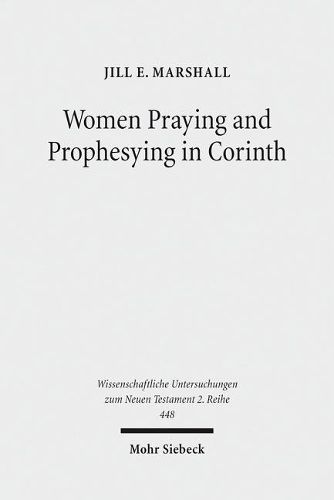Readings Newsletter
Become a Readings Member to make your shopping experience even easier.
Sign in or sign up for free!
You’re not far away from qualifying for FREE standard shipping within Australia
You’ve qualified for FREE standard shipping within Australia
The cart is loading…






In First Corinthians, Paul makes two conflicting statements about women’s speech: He crafts a difficult argument about whether men and women should cover their heads while praying or prophesying (11:2-16) and instructs women to be silent in the assembly (14:34-35). These two statements bracket an extended discussion about inspired modes of speech - prophecy and prayer in tongues. From these exegetical observations, Jill E. Marshall argues that gender is a central issue throughout 1 Corinthians 11-14 and the religious speaking practices that prompted Paul’s response. She situates Paul’s arguments about prayer and prophecy within their ancient Mediterranean cultural context, using literary and archaeological evidence, and examines the differences in how ancient writers described prophetic speech when voiced by a man or a woman.
$9.00 standard shipping within Australia
FREE standard shipping within Australia for orders over $100.00
Express & International shipping calculated at checkout
In First Corinthians, Paul makes two conflicting statements about women’s speech: He crafts a difficult argument about whether men and women should cover their heads while praying or prophesying (11:2-16) and instructs women to be silent in the assembly (14:34-35). These two statements bracket an extended discussion about inspired modes of speech - prophecy and prayer in tongues. From these exegetical observations, Jill E. Marshall argues that gender is a central issue throughout 1 Corinthians 11-14 and the religious speaking practices that prompted Paul’s response. She situates Paul’s arguments about prayer and prophecy within their ancient Mediterranean cultural context, using literary and archaeological evidence, and examines the differences in how ancient writers described prophetic speech when voiced by a man or a woman.